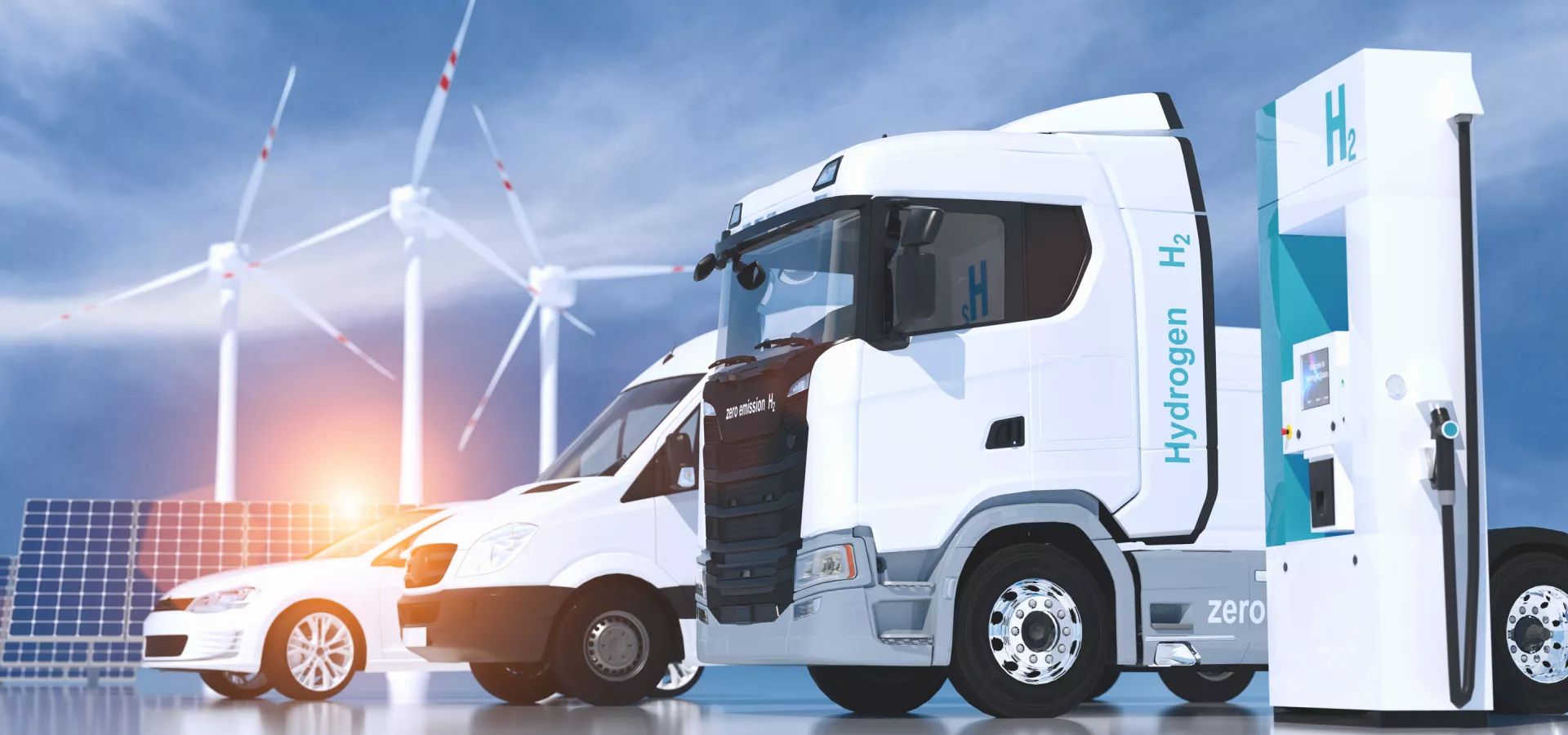
Fuel Cell
In a fuel cell, a fuel reacts with an oxidant. This produces electrical energy, heat and water as reaction products. Today, fuel cells are operated primarily with hydrogen as the fuel. It is therefore not uncommon to speak of a hydrogen cell. Applications include fuel cell heating systems, marine and space applications, and rail transportation. In addition, they have been under discussion for some years as a drive system for vehicles - here, fuel cells are intended to help establish climate-friendly road traffic.
What is a Fuel Cell?
A fuel cell is a galvanic cell whose main task is to generate thermal and electrical energy. No additional external energy is required for this, which is why it is also referred to as "cold combustion". In the fuel cell, hydrogen is fed to the anode via the tank, while oxygen from the ambient air reaches the cathode. When the two substances react with each other, thermal and electrical energy is released without nitrogen oxides being produced. The permanent supply of hydrogen and oxygen also enables continuous energy generation. Important: A fuel cell is an energy converter and not an energy store - this is the decisive difference to a battery.
Failed applications of Fuel Cells
Fuel cells offer the possibility of self-sufficient energy generation with particularly low weight. This is an advantage in many areas, which is why the technology is used in aerospace, for example. Many companies therefore also wanted to introduce the fuel cell as a mobile energy supply for electronic devices. For example, solutions were being considered for portable chargers for smartphones that could be charged on the move using a fuel cell. However, actual market launches have not yet taken place. Experts also believe that the demand for fuel cells to power small electronic devices will probably not catch on. Batteries used instead are already proving to be small, compact and powerful enough.
Fuel Cells in motor vehicles
Fuel cells are being considered as an alternative to conventional combustion engines. In Germany, battery electric vehicles (BEVs) are currently favored, but in Japan, fuel cells play a more important role in e-mobility. Here, vehicles with fuel cells are seen as an important alternative on the road to the energy transition and are on the roads as fuel cell electric vehicles (FCEVs). Compared to classic electric cars with batteries, vehicles with a fuel cell impress with shorter charging times and longer ranges. Disadvantages, however, are that green hydrogen in particular is not yet (sufficiently) available to operate the fuel cells and that the cost-effective series production of cars with fuel cells is still a long time coming.
Advantages of Fuel Cells
When it comes to the advantages of fuel cells, it is first necessary to examine what the fuel cell is being compared to. As a drive system in a motor vehicle, the fuel cell offers a number of advantages over diesel engines - the reduced CO2 emissions alone are remarkable. When comparing a fuel cell with a conventional battery, on the other hand, the differences are not quite so great: fuel cells offer the advantage of lower weight, but are associated with significantly higher investment costs.
With regard to the automotive industry, it may be an opportunity not to view battery and fuel cell technology separately as competing offerings, but to recognize the advantages of possible hybrid forms. For large, heavy vehicles in particular, however, fuel cells are the better choice from the outset, according to some experts - the additional burden of heavy batteries can be bypassed with their help.